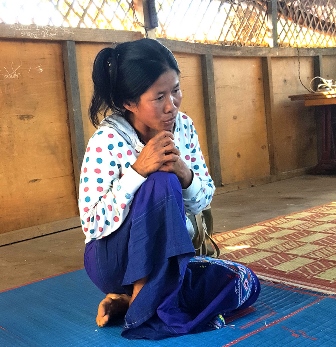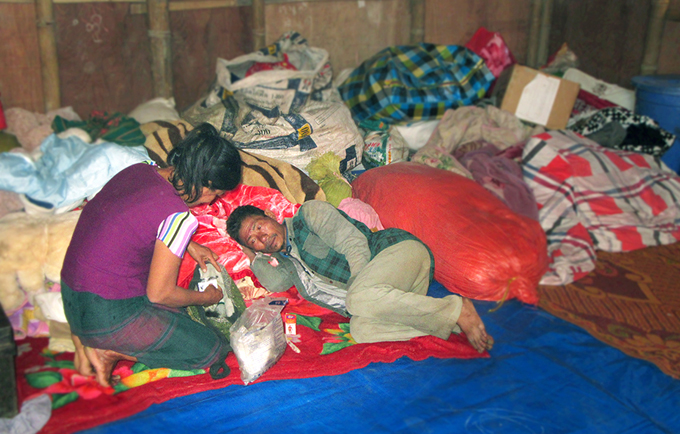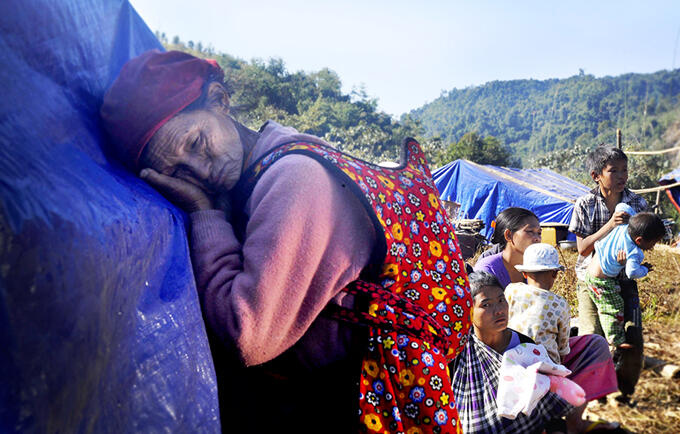Since the armed conflict in northern Myanmar’s Kachin State intensified in December 2015, almost 7,000 people have fled the area amid shelling and airstrikes. Among the people on the run are 260 pregnant women. Many of them are sleeping on the roadside, unable to find shelter. Their needs are acute.
The area is highly militarized, and ongoing fighting and unsafe routes restrict access to the people in need. Only by working with local humanitarian partner Health Poverty Action has UNFPA been able to deliver reproductive health care, clean delivery kits, and dignity kits through the lines of fire to pregnant, breastfeeding and vulnerable women.
Women are under threat of violence, including sexual violence, both in daytime and at night. High-risk situations include having to manage sanitation and menstrual hygiene without shelter, privacy or protection.
Women and girls at risk of assault
While many people on the run remain unaccounted for, some have arrived at camps away from the fighting. There they are staying in hall-type rooms without partitions, and sleeping on concrete floors.
“Women and girls fear assault each time they have to go into the forest to relieve themselves, each time they go to sleep without a door to lock behind them”, says Kyaw Wai Aung, UNFPA field officer, who delivered female dignity kits to displaced women in Sadung Township.
With the help of Kachin Baptist Convention, UNFPA has also distributed solar lanterns to women and girls to improve their safety at night.
Many of the thousands of people who have fled were already living in camps, which they had to evacuate as the fighting approached. The multiple displacement is adding to the trauma of both women and men. The conditions of extreme stress, combined with lack of privacy, mean that women and girls are under threat of violence also within their own family. Together with Metta Development Foundation, UNFPA is providing psychosocial support to the displaced people in both government-controlled and non-government-controlled areas in the conflict zone.
“I feel drained and without a soul”

One of the women receiving psychosocial support is Hpauyam Kaw Mai, 44, who fled the embattled Maga Yang IDP camp to the Hpumlum Yang IDP camp. She was among the last to leave, because she was not able to move her three children aged four, six, and seven, and her disabled husband.
“We made children go to bed to the sound of gunfire, afraid of the bullets coming our way. We didn’t have enough to eat. I don’t remember how many days we got through without meals. I don’t know what happened to the children either. They would not eat, even when we were given some biscuits.”
When two-thirds of the camp population were gone, Kaw Mai was told to get ready to leave. She packed the family’s bags, and also the roofing and other parts of her shelter. They had to spend two nights sleeping out in the cold before they could be evacuated. In temporary shelter at the Hpumlum Yang camp, Kaw Mai is traumatized, ill, and struggling to care for her family.
“I feel very small and vulnerable. I don’t know where to go and what to do. I don’t even know where I can collect a piece of firewood. I cannot bear the struggle any longer. I feel drained and without a soul.”



